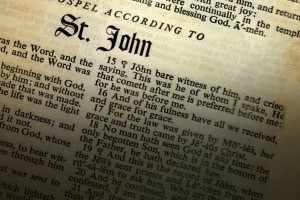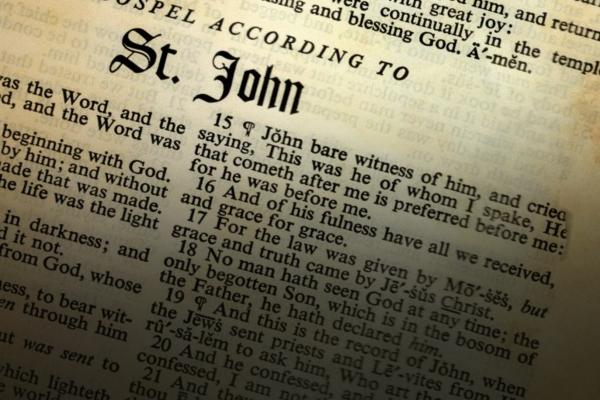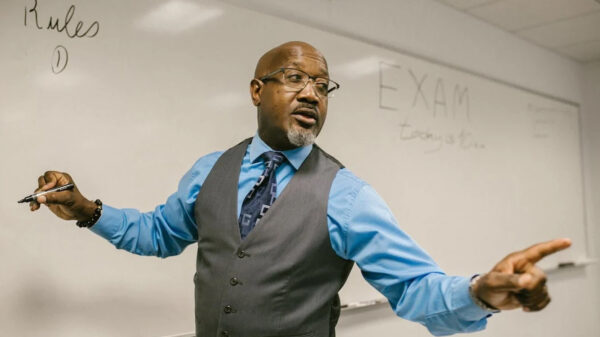
Attributed Statements
The New Testament authors repeatedly referred to themselves as eyewitnesses, even if they did not make overt statements including their names. In the last chapter of John’s Gospel, the author tells us he is testifying and his testimony is true. Language such as this presumes the author has seen something he can describe as eyewitness testimony. In addition, the authors of 1 John and 2 Peter identify themselves as eyewitnesses who directly observed Jesus, and were not inventing clever stories (1 John 1:1,3 and 2 Peter 1:16). While Luke clearly states he is not an eyewitness to the events in his gospel, he does tell us he is relying on the true eyewitnesses for his information (Luke 1:1). These cumulative statements are consistent with the notion the authors of the Gospels saw themselves as eyewitnesses who were recording history.
Apostolic Strategy
This is consistent with the way these authors behaved in the Book of Acts. It’s interesting the strategy used by the apostles to share the truth of Christianity was consistent with their role as eyewitnesses. When the apostles chose to share what they believed with the unbelievers in their midst, they did so by proclaiming the truth of the resurrection and their own status as eyewitnesses. This is consistent throughout the Book of Acts. The apostles identified themselves as eyewitnesses, shared the truth as eyewitnesses, and eventually wrote the Gospels as eyewitnesses.
Ancient Support
The earliest writings of the church fathers simply confirm the eyewitness nature of the Gospel authors. Papias, for example, described Mark’s Gospel as a record of Peter’s teachings related to what Peter saw and heard from Jesus. According to Papias, while Mark was not himself an eyewitness to the events described in his Gospel, he did accurately record the firsthand experiences of his teacher and mentor, Peter.
Authoritative Selection
Finally, the Canon of Scripture reflects the eyewitness nature of the Gospel accounts. One of the primary criteria for the selection of the Canon was the issue of eyewitness composition. The original Gospels were protected and revered based on their apostolic authorship, and late documents were rejected by the early Church Fathers based on the fact they were considered to be fraudulent narratives offered by authors late in history who were not actually present for the life and ministry of Jesus. The criterion of eyewitness authorship became foundational to the selection process.
A straightforward reading of the Book of Acts reveals the apostles saw themselves as eyewitnesses. Share on X
A straightforward reading of the Book of Acts reveals the apostles saw themselves as eyewitnesses. The early Church recognized this and formed the Canon around the historic, apostolic record related to Jesus. While features of the Gospels may still be challenged by those who deny the eyewitness nature of the texts, the best inference from the evidence is the Gospels were intended to be eyewitness accounts.

J. Warner Wallace is a Dateline featured Cold-Case Detective, Senior Fellow at the Colson Center for Christian Worldview, Adj. Professor of Christian Apologetics at Talbot School of Theology, Biola University, author of Cold-Case Christianity, God’s Crime Scene, and Forensic Faith, and creator of the Case Makers Academy for kids.
Subscribe to J. Warner’s Daily Email
Save
J. Warner Wallace is a Dateline featured cold-case homicide detective, popular national speaker and best-selling author. He continues to consult on cold-case investigations while serving as a Senior Fellow at the Colson Center for Christian Worldview. He is also an Adj. Professor of Christian Apologetics at Talbot School of Theology, Biola University, and a faculty member at Summit Ministries. He holds a BA in Design (from CSULB), an MA in Architecture (from UCLA), and an MA in Theological Studies (from Gateway Seminary).







































Pingback: Can Paul Be Considered a Witness if He Never Actually Saw Jesus? - Cross Examined - Christian Apologetics | Frank Turek
Pingback: Can Paul Be Considered a Witness if He Never Actually Saw Jesus? | Cold Case Christianity
Pingback: Believing the Gospels Is Different Than Trusting the Gospel | Cold Case Christianity
Pingback: Why Didn’t Jesus Reveal Scientific Facts to Demonstrate His Deity? - Cross Examined - Christian Apologetics | Frank Turek
Pingback: Why Didn’t Jesus Reveal Scientific Facts to Demonstrate His Deity? | Cold Case Christianity
Pingback: Why Didn’t Jesus Reveal Scientific Facts to Demonstrate His Deity? | Apologetics ForumApologetics Forum
Pingback: Real Clear Apologetics | How Ancient Eyewitness Testimony Became the New Testament Gospel Record
Pingback: How Ancient Eyewitness Testimony Became the New Testament Gospel Record | Apologetics ForumApologetics Forum
Pingback: The Case for the Eyewitness Status of the Gospel Authors | Apologetics ForumApologetics Forum
Pingback: Is the Bible True? The Cumulative Case for the Reliability of the Gospels (Free Bible Insert) | Cold Case Christianity
Pingback: How Ancient Eyewitness Testimony Became the New Testament Gospel Record | Cold Case Christianity
Pingback: What Does Christianity Say About the Nature of Jesus? Five Critical Claims | Cold Case Christianity
Pingback: The Apostles Wrote the Gospels as Eyewitness Accounts | TLG Christian News
Pingback: mid-week apologetics booster (9-1-2016) – 1 Peter 4:12-16
Pingback: Reasons Why We Know God’s Word is True: The Evidence - Life After Ministries
Pingback: The Top 10 Cold-Case Christianity Articles from 2016 | Apologetics.com
Pingback: The Top 10 Cold-Case Christianity Articles from 2016
Pingback: Proof against Atheistsic & Evolutionistic Theology – Mommy on a Mission Project
Pingback: How Ancient Eyewitness Testimony Became the New Testament Record | Christian Training Center International
Pingback: The Gospels Are Reliable Eyewitness Accounts – Deeper Understanding
Anthony Garis
March 30, 2022 at 6:40 pm
In John 21:24, the eyewitness being referred to is the unnamed disciple who is being talked about in the preceding verses. The author of the Gospel is not referring to himself.